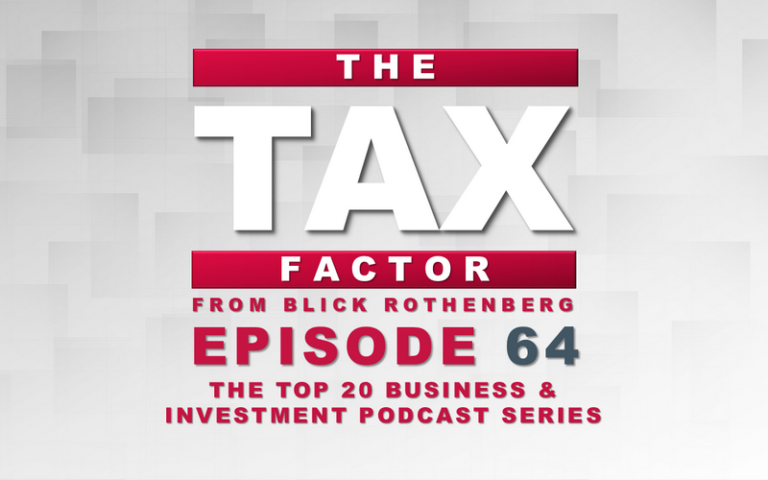US LLCs are a type of private limited company. They offer investors limited liability and also have an attractive tax profile under the US Internal Revenue Code. This combination has resulted in LLCs being widely used in the USA as pooled investment vehicles. Such structures raise no issues for the investor who is resident in the USA. However, the picture can change dramatically in an international context.
This article looks at the issues which face two types of investors who are UK based, but wish to invest in the US other than in listed corporations:
- US citizens and ‘green card’ holders who live and work in the UK and are resident in the UK for local tax purposes
- Non-Americans who are resident in the UK for tax purposes
A brief history of LLCs
LLCs were first created under Wyoming State law in 1977. However, this new type of business entity was neither widely used, nor replicated in the legislation of other States, until the 1990s.
Delaware, home to many of today’s LLCs, did not have its own LLC law until 1991.
It is important to understand that despite offering limited liability to its owners, the LLC is a different animal to a regular US corporation.
What makes LLCs so popular in the US?
At one time, how you invested in, or conducted, a US business involved acceptance of higher tax as the price to be paid for having limited liability.
While a corporation offered limited liability, profits suffered two levels of taxation between being earned and distributed:
- Profits of a corporation are taxed at the corporate level.
- That corporate tax ‘bite’ reduces the pool of funds available for distribution to shareholders
- When funds are distributed by way of a dividend to shareholders, that dividend is taxable income in the hands of the recipient shareholder.
For a business with a wide ownership base, traditionally the only alternative to a corporation was to constitute the enterprise as a partnership. This model avoided having two levels of taxation. For tax purposes, a partnership is treated as transparent (‘look-thru’ in US parlance). Profits of the business are allocated, pro-rata, among the Partners and represent taxable income to each of those Partners. However, a traditional general Partnership does not offer limited liability to any of its members.
That inherent disadvantage of a general Partnership was addressed in part by the development of Limited Liability Partnerships (LLPs). These involve two classes of Partner. One or more general Partners carry the burden of unlimited liability. For a limited Partner, exposure to claims or financial losses is restricted to that Partner’s capital investment in the Partnership.
In contrast, the LLC offers limited liability to all members, while effectively being treated as a Partnership (i.e., transparent) for US Federal Income Tax purposes.
What happens when an LLC member is exposed to UK Income Tax?
For tax matters, the US and the UK have a fundamental difference of opinion on the entity classification applicable to an LLC.
In the US, the default tax classification for an LLC is to treat it as if it was a Partnership. (i.e., transparent):
- The members have the collective ability, by election, to change that default classification. Such an election causes the LLC to be treated as a corporation for US Federal Income Tax purposes, and thus itself subject to taxation.
- It is highly unlikely that any LLC being used as a widely owned US collective investment vehicle would make such an election.
For UK tax purposes, an LLC is treated as a corporation. No elective route exists to vary that classification. It is thus an ‘opaque’ entity, meaning that its profits belong to itself, and that is where they are taxed.
This difference in classification results in double taxation for any member of the LLC who is resident in the UK and liable to UK taxation. With one very narrow exception, there is no way to avoid such double taxation.
Why double taxation occurs?
Note: For simplicity of explanation, the examples below assume that all LLC profits arise from sources within the US.
A. The non-American LLC member who is resident in the UK for tax purposes:
- The US will tax them on their pro-rata share of the LLC’s profit.
- The UK view is that the LLC is a corporation. Hence the individual member is only in receipt of taxable income when they receive a distribution (i.e., a dividend equivalent) from the LLC.
- The LLC distributes 50% of the profit on which US tax was paid at Step 1 above.
- That distribution to the member is a taxable event in the UK.
- The member innocently thinks that 50% of the US tax incurred at Step 1 will be available as a credit to offset against the UK tax charged at Step 4 above.
- The UK refuses to give any credit for US tax suffered by the LLC member. This is explained as follows:
a) If Taxpayer A pays £x of Taxpayer B’s tax, Taxpayer A is not allowed to reduce their own liability by £x. (This is a basic principle in both the UK and the US)
b) As far as the UK is concerned:
i. The profits of the LLC are taxed in the hands of the LLC itself. (The LLC is Taxpayer B.)
ii. The LLC member (i.e. Taxpayer A) has paid some of Taxpayer B’s tax.
iii. That payment by the LLC member (Taxpayer A) cannot be used to offset their own UK tax liability on the income distribution received from the LLC.
- The result is that the LLC member bears the cost of:
a) US tax on 100% of their pro-rata share of LLC income.
b) Full UK tax on the amount of that part of the profit share distributed.B
B. US citizens and ‘green card’ holders who live and work in the UK and are resident in the UK for local tax purposes:
- The UK position is the same as outlined above for the non-American.
- No credit is given in the UK for US tax paid on the member’s pro-rata share of LLC income.
- However, US citizens and ‘green card’ holders are potentially able to credit foreign taxes against their US Federal Income Tax.
- Unfortunately, that is of no help in this situation:
a) The US allows a foreign tax credit against that part of the individual’s Federal Income Tax liability attributable to income/gains arising outside the US.
b) In this LLC situation, the LLC’s income arises from sources within the US.
c) As none of the LLC’s income arises outside the US, none of the member’s Federal Income Tax liability attributable to LLC income is eligible to be offset by foreign tax credits.
Can the US/UK Tax Treaty (“the Treaty”) be of any assistance?
Other than in one narrow instance (of which, more later) the answer is NO.
The US and UK teams who negotiated the Treaty were well aware of the dilemma faced by an LLC member who happened to be resident in the UK for tax purposes.
The US Treasury’s Technical Explanation of the Treaty says:
“Income from U.S. sources received by an entity organized under the laws of the United States, which is treated for U.K. tax purposes as a corporation and is owned by a U.K. shareholder who is a U.K. resident for U.K. tax purposes, is not considered derived by the shareholder of that corporation even if, under the tax laws of the United States, the entity is treated as fiscally transparent. Rather, for purposes of the treaty, the income is treated as derived by the U.S. entity.”
The UK Inland Revenue issued a Special Edition Tax Bulletin to accompany ratification of the Treaty. On the matter of US LLCs, it said:
“The UK taxes a UK member of an LLC by reference to distributions of profits made by the LLC and not by reference to the income of the LLC as it arises. If tax is paid in the US on profits of the LLC – and irrespective of by whom that tax is paid – the UK regards that as underlying tax. Credit is available for it if, and only if, the member is a UK company which controls, directly or indirectly, at least 10% of the voting power of the LLC.
“It follows that relief for underlying tax is not available to an individual member of an LLC……. There is no authority to allow relief for what is underlying tax to a UK individual member of an LLC.”
But what about Mr. Anson, a UK resident individual who the UK Supreme Court held could claim a credit for US tax suffered on his US LLC income?
This is the very narrow instance mentioned earlier of relief being available under the US/UK Tax Treaty.
Beware what you might read elsewhere about the implications for other taxpayers of the Supreme Court’s decision in this case. Some commentators suggest that the Court found Mr. Anson’s LLC to be a transparent entity for UK tax purposes, and that this ‘fact’ might be relied on by other taxpayers who are members of other US LLCs. Such views should be addressed with caution.
Decisions of the UK Supreme Court do usually have wide precedential value. Unfortunately, that is not the case with this decision, a fact that has been remarked on in public by the QC who represented Mr. Anson in the Supreme Court.
The Court’s decision concerned a very narrow point of interpretation involving the Treaty. In particular, the meaning of “the same income”, as those words are used in one part of the Treaty. The LLC involved was constituted under Delaware State Law. Accordingly, its governing deed had to be interpreted according to Delaware State Law. During the fact-finding process in a lower court, evidence was heard from experts in Delaware corporate law as to the meaning of provisions in the governing deed specifying what happened to the LLC’s profits, as they were earned.
Based on this fact-finding, it was held that as regards Mr Anson and the LLC in question:
- How Delaware Law treated that LLC’s profits meant that,
- The US and the UK were taxing the “same” income (as that word is used in the Treaty), and
- Consequently, under the terms of the Treaty, Mr Anson was allowed a credit for US taxes.
Immediate comfort can be drawn from this decision by other UK resident individuals who are:
- Members of a Delaware LLC, and
- The governing deed of that Delaware LLC, when specifying what happens to profits, uses identical language to that in Mr. Anson’s LLC.
To justify taking the same route as Mr. Anson in the case of a Delaware LLC whose governing deed uses different language to Mr Anson’s, will require written confirmation from a suitable expert that the same end effect is reached under Delaware Law.
In the case of an LLC formed under any other State Law, an expert opinion will be required regardless of the form of words used in the LLC’s governing deed.
If that expert opinion comes to the hoped for conclusion, HMRC may still play ‘hard ball’ when processing the UK Income Tax return submitted by the LLC member.using solely on the US/UK transfer tax implications of lifetime giving, the important factors are the US/UK tax status of the donor and the situs of the asset itself. The recipient of a gift is not themselves typically subject to US/UK transfer tax and so their status does not always play an important role.





























